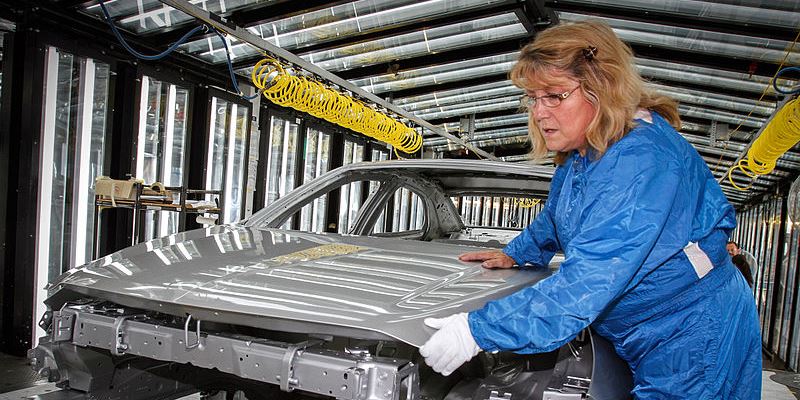What’s good for GM workers isn’t always good for Canada

The destruction part of “creative destruction” is never fun. Learning just before Christmas that you’ll be losing your job next year, as almost 3,000 workers at General Motors’ Oshawa plant did this week, is hard. And the just-before-Christmas timing is terrible—except that if you are going to lose your job, you want to know as soon as your employer has decided thumbs down.
The destruction part of creative destruction also often gets more play in the press, and for perfectly understandable reasons. Car crashes make the news. Cars arriving safely at their destination, as the vast, vast majority do every day, isn’t noteworthy.
But even on days when the destruction part of creative destruction is top of mind, we shouldn’t lose sight of the creation part. In fact, this week’s stories about the plant closings in Oshawa, Ohio, Michigan and Maryland generally mentioned GM’s plans to hire 500-1,500 software engineers at its research facilities in Detroit and Markham, Ontario. For that matter, the same news cycle brought reports that Accenture, the consulting company, will hire 800 new technologists by the end of 2020 at its new Toronto innovation hub.
The fact is, even judging only by the labour market, there’s a tremendous amount of creation (i.e. new hiring) every year. Even in 2009, a dark year in Canada’s labour market, 2.4 million—yes, million—Canadians were hired into jobs lasting at least into the following year. (Many lasted longer than that but a year is StatsCan’s working definition of a “new hire.”)
I’m not arguing that all GM workers who are losing their jobs will get these new jobs that are opening up. A few might, but most very likely don’t have the skills the new jobs require. Nor am I arguing they’ll necessarily find work where they want it or that pays them as well or gives them as much satisfaction as the job they’re losing. It’s not a zero-sum process, but some people usually lose as a result of the changes a dynamic economy grinds out. Which is why we have employment insurance and private and public pensions. (GM says half its Oshawa workers have reached entitlement for a full pension.)
No, I’m arguing only that the economy is dynamic and continues to generate new employment opportunities, albeit not necessarily ones that all newly-unemployed workers can fill.
Would it be better to have creative destruction that was less destructive? Of course it would. Destruction-free creation—“creative creation”—would be best of all. And if the world had less gravity, people could fly. But the proposals you hear for reducing the destruction part —“Nationalize GMC,” “Subsidize the plant,” “Keep foreign-made cars out”—don’t say how the creation side would keep up.
The Oshawa plant makes Chevy Impalas. Impalas aren’t selling. And when they do sell, they sell at a loss. GM will use the $6 billion it saves by shuttering plants to try to make its way in the driverless and electric car markets. Its current Oshawa workers aren’t the people it needs to do that, however, as many Oshawa workers themselves might well concede. Should we instead insist that Canadians buy more Impalas and restrict their car choices until they do? And how well-made or innovative will these Impalas be once the market for them is guaranteed?
I suppose we could have rules that said to companies, “If you run a plant that employs 17,000 people [as GM’s Oshawa operation did just 10 years ago] then whatever you do in future you must continue to employ those 17,000 people.” But if we do adopt such a rule, we’re going to a) create a very strong disincentive to employ people at all, if doing so means you have to employ them for life and b) greatly reduce the flexibility of firms to reinvent themselves, which is what we need them to do to maximize the creative part of creative destruction.
The same news cycle that told us about the GM layoffs also brought more inside information, based on newly-released court documents, about the interregional politicking involved in the federal government’s purchase of just one interim supply ship for the Royal Canadian Navy (to replace those that had been allowed to rust away). Just imagine the politicking that would be involved in running a full-fledged auto plant. And the impossibility of getting timely, efficient decisions made.
We need at least some institutions in society where the bottom line really is the bottom line, running at a permanent loss is not an option, and making tough unpopular decisions goes with the territory.

